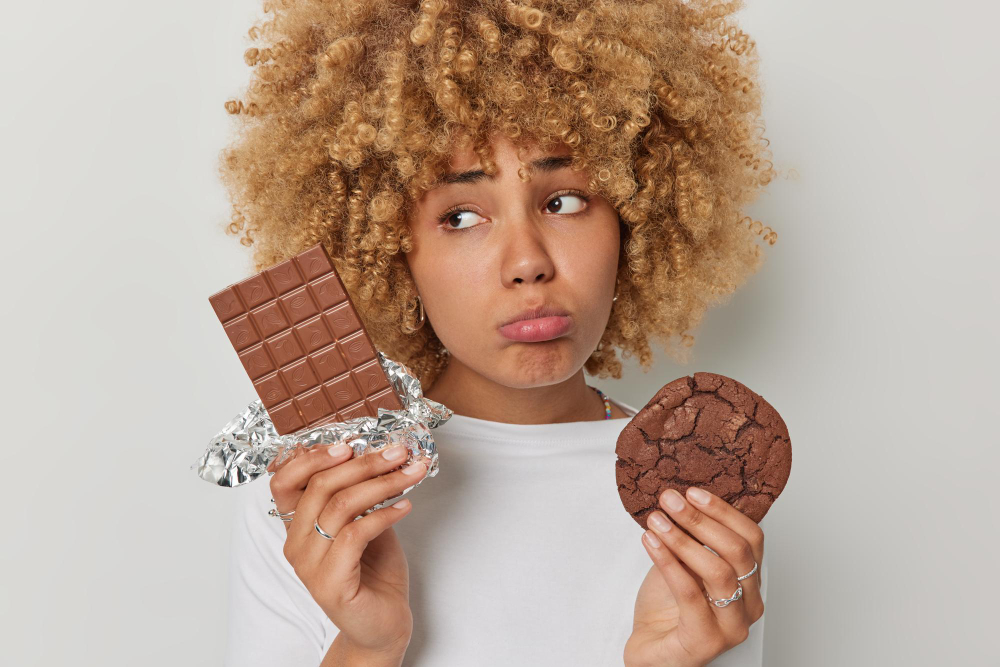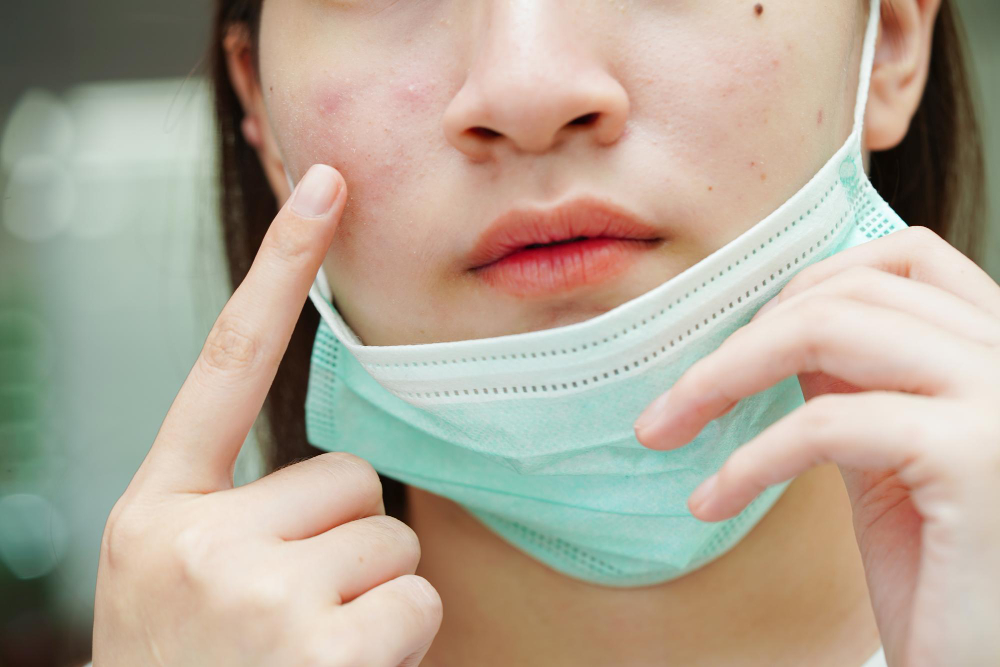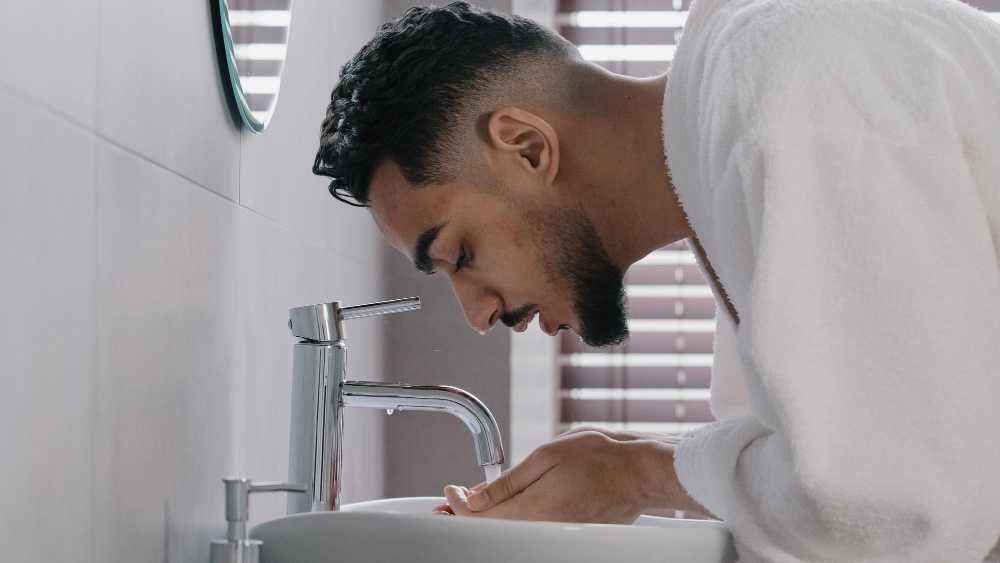Can chocolate cause acne? While the answer is not clear-cut, certain ingredients in chocolate can worsen existing acne or trigger breakouts in some people. This article delves into the science behind how chocolate affects our skin and provides tips to prevent acne after consuming chocolate. We discuss the impact of sugar, dairy, and caffeine on acne-prone skin, and how to choose the right chocolate to minimize the risk of breakouts. Additionally, we explore whether chocolate has benefits for the skin and share tips for maintaining good skincare habits to keep your skin clean and clear.
Does Chocolate Cause Acne?
When it comes to the question of whether or not chocolate causes acne, the answer is not a straightforward one. While there is no direct link between eating chocolate and developing acne, there are certain ingredients in chocolate that can worsen existing acne or potentially trigger breakouts in some individuals. In this article, we will explore the science behind how chocolate can affect our skin and what steps we can take to prevent acne after consuming chocolate.
Sugar
One of the primary culprits in chocolate that can contribute to acne breakouts is sugar. Chocolate often contains high levels of sugar, which can cause inflammation in the body and contribute to acne. When we consume sugar, it causes our blood sugar levels to spike, which leads to an increase in insulin. This increase in insulin can trigger the production of sebum, an oily substance that can clog pores and lead to breakouts.
To minimize the impact of sugar on our skin, it is important to choose chocolate with lower sugar content. Dark chocolate, for example, contains less sugar than milk chocolate and is a better option for those looking to avoid acne breakouts.

Dairy
Another ingredient in chocolate that can contribute to acne breakouts is dairy. Many types of chocolate, such as milk chocolate, contain dairy products. Studies have shown that dairy can increase the production of hormones, such as insulin-like growth factor-1 (IGF-1), which can also lead to the overproduction of sebum and contribute to acne breakouts.
If you are prone to acne breakouts, it is recommended to choose chocolate that is dairy-free or made with non-dairy milk alternatives, such as almond or oat milk.
Caffeine
Caffeine is another ingredient found in chocolate that can potentially worsen existing acne. While caffeine does not directly cause acne, it can increase stress levels and contribute to inflammation in the body, which can exacerbate acne symptoms.
To minimize the impact of caffeine on our skin, it is recommended to consume chocolate in moderation and avoid consuming it before bed. Additionally, drinking plenty of water throughout the day can help to flush out toxins from the body and minimize the impact of caffeine on our skin.
Can Eating Chocolate Cause Acne?
While there is no direct link between chocolate and acne, there are certain factors that can contribute to acne breakouts after consuming chocolate. For example, if you have a pre-existing condition such as acne, eating chocolate that contains high amounts of sugar and dairy can exacerbate your condition and lead to more breakouts. Discover the root causes of acne outbreaks and the latest treatments to prevent scarring. Read our comprehensive guide on acne.

However, if you have a healthy diet and do not have any pre-existing skin conditions, eating chocolate in moderation is unlikely to cause acne breakouts. In fact, some studies have even suggested that chocolate can have benefits for the skin. Dark chocolate, in particular, contains high levels of antioxidants, which can help protect the skin from damage caused by free radicals and reduce inflammation.
How to Prevent Acne After Eating Chocolate?
If you are prone to acne breakouts and still want to enjoy chocolate, there are some steps you can take to reduce your risk of breakouts. Firstly, opt for dark chocolate over milk chocolate as it contains fewer dairy products and less sugar. Secondly, consume chocolate in moderation and balance it out with a healthy diet and exercise. This will help to prevent spikes in blood sugar levels and reduce inflammation in the body.

Lastly, make sure to maintain good skincare habits such as washing your face regularly, avoiding harsh skincare products, and using non-comedogenic moisturizers. This will help to keep your skin clean and clear and reduce the risk of breakouts.
Is Chocolate Good for Acne?
While chocolate may not be directly beneficial for acne, some types of chocolate can provide benefits for the skin. Dark chocolate, in particular, contains high levels of antioxidants, which can help protect the skin from damage caused by free radicals and reduce inflammation. Additionally, the flavonoids found in dark chocolate have been shown to improve blood flow and increase skin hydration, which can help to promote healthy, glowing skin.

Final Thoughts
In conclusion, while chocolate may not directly cause acne, certain ingredients such as sugar, dairy, and caffeine can contribute to existing acne or trigger breakouts in some individuals. To minimize the risk of breakouts, it is important to choose chocolate with lower sugar content, dairy-free or non-dairy milk alternatives, and consume it in moderation. Good skincare habits such as regular washing and non-comedogenic moisturizers can also help prevent breakouts.

If you have concerns about your skin and acne, consider consulting with a dermatologist. Remotederm offers online dermatology consultations that can be accessed from anywhere, eliminating the need for long waits to visit dermatologists in person. Take care of your skin, and enjoy your chocolate in moderation!
FAQs
- Is dark chocolate good for the skin?
Yes, dark chocolate contains high levels of antioxidants, which can help protect the skin from damage caused by free radicals and reduce inflammation. However, in general consuming too much chocolate will worsen your acne breakouts.
- What are some good skincare habits to prevent acne breakouts?
Good skincare habits include regular washing, avoiding harsh skincare products, and using non-comedogenic moisturizers.
- What is the best way to wash my face to prevent acne?
To prevent acne, it’s important to wash your face twice a day with a gentle cleanser and lukewarm water. Scrubbing too hard or using harsh products that can irritate the skin are both bad ideas.
